A fierce battle is being waged between cotton and polyester, with polyester edging ahead as the most widely used fiber in the world, for now. In fact, synthetic materials account for more than half of today’s overall market share.
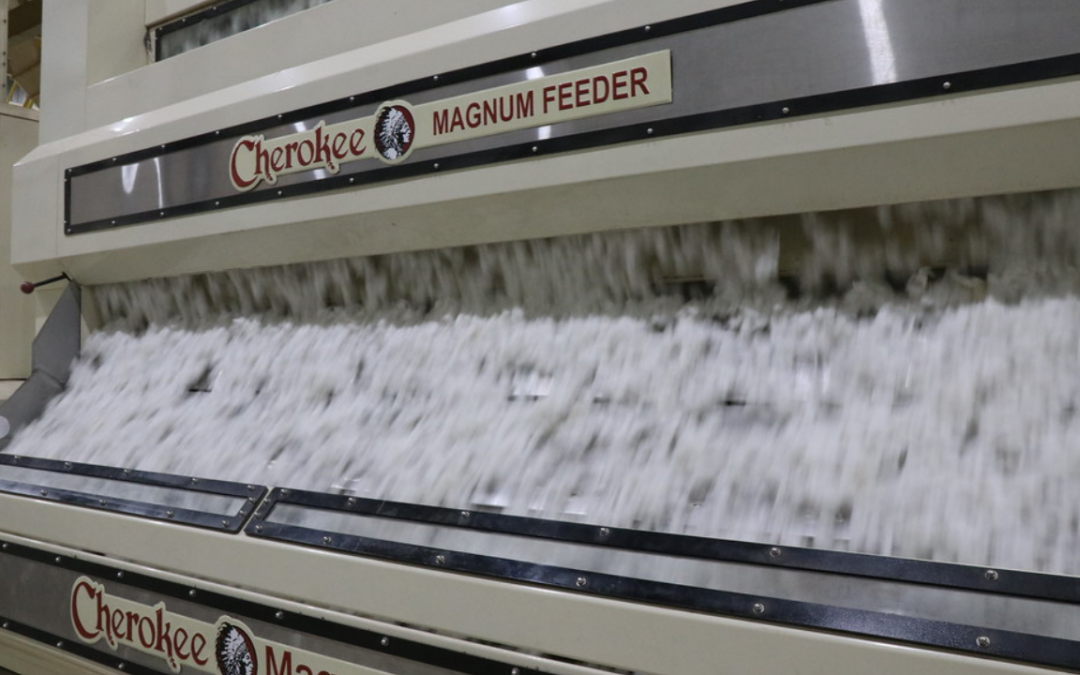

A fierce battle is being waged between cotton and polyester, with polyester edging ahead as the most widely used fiber in the world, for now. In fact, synthetic materials account for more than half of today’s overall market share.
Effective July 1, 2025, Josh Lee will join Auburn University and the Alabama Cooperative Extension System as an extension specialist for cotton. His responsibilities will include in-service training for extension agents, conveying information about new developments...
Auburn University researchers and Alabama Extension specialists are taking their expertise from labs and small experimental plots to Alabama farmers’ fields with a $4 million grant from the Natural Resources Conservation Service (NRCS). The grant aims to increase...

Effective July 1, 2025, Josh Lee will join Auburn University and the Alabama Cooperative Extension System as an extension specialist for cotton. His responsibilities...
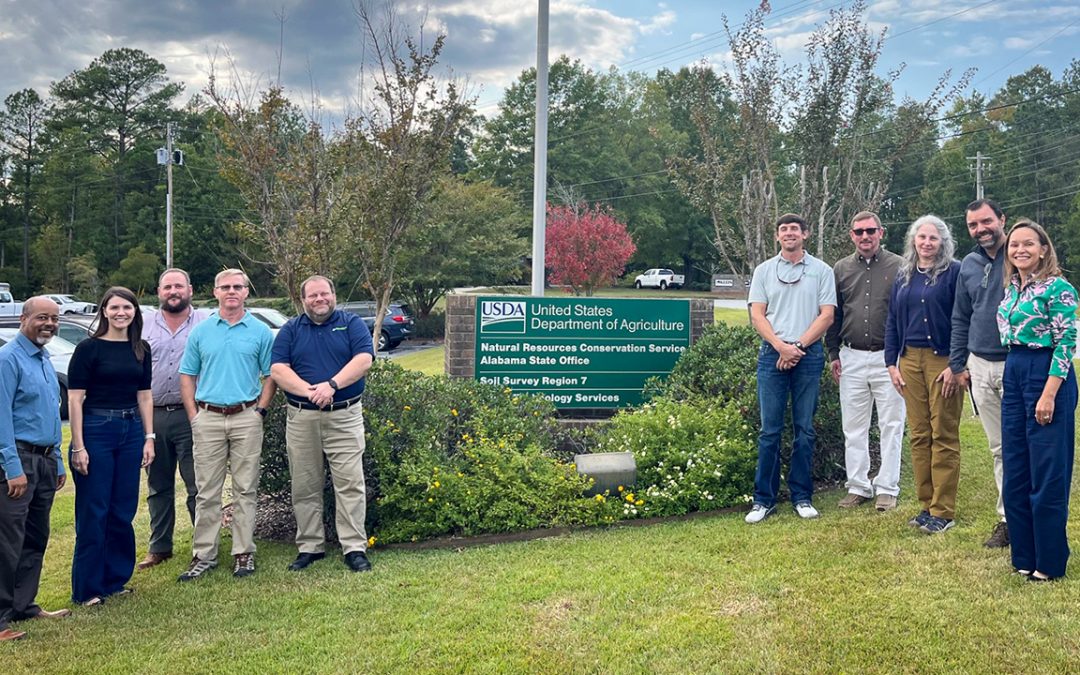
Auburn University researchers and Alabama Extension specialists are taking their expertise from labs and small experimental plots to Alabama farmers’ fields with a $4...
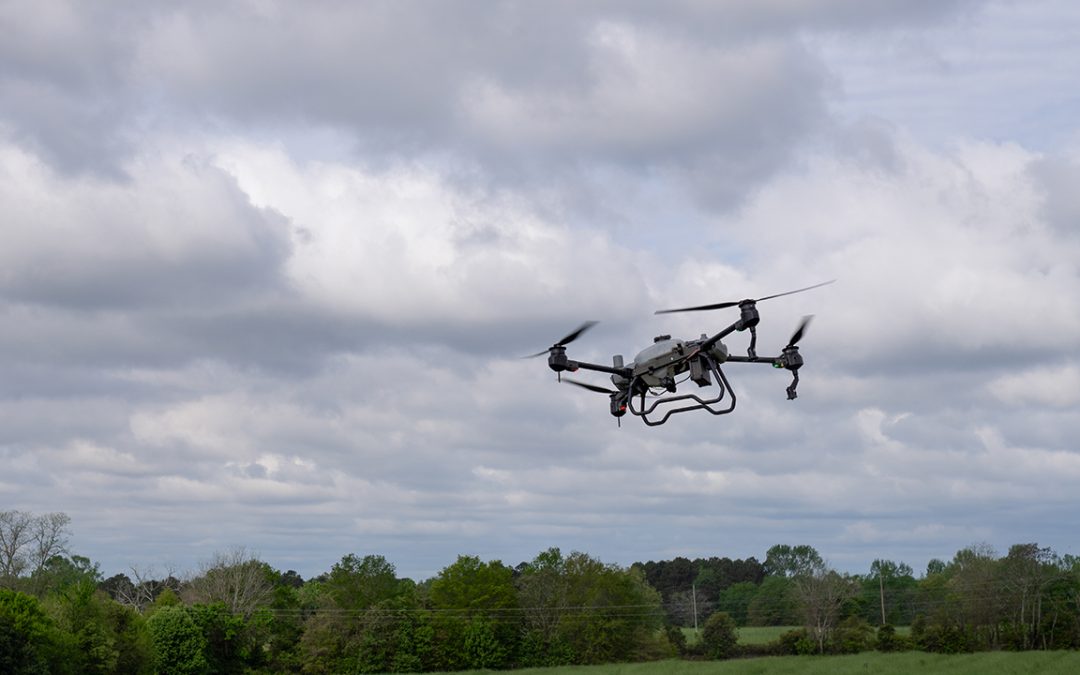
Auburn-developed method could advance efforts to breed a drought-tolerant peanut Auburn University researchers have devised a new means of measuring the physiological...
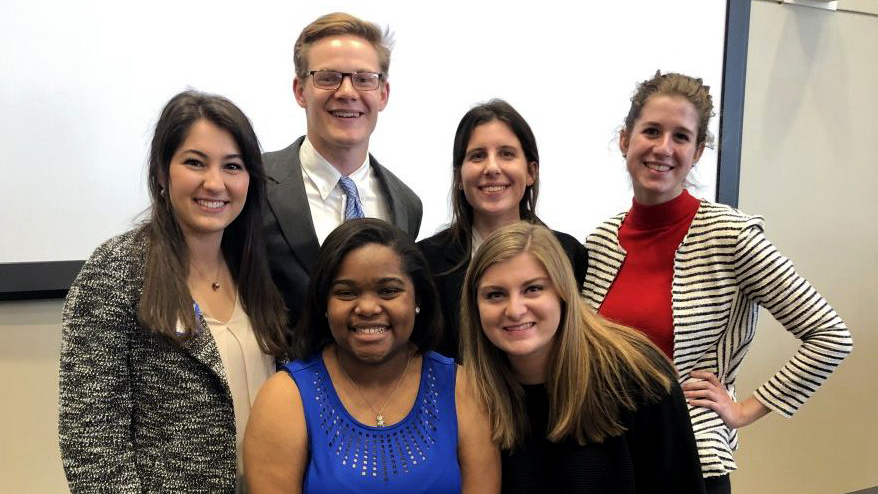
A six-member team of Auburn agriculture majors won first place in the university’s inaugural Global Health Case Competition in January and advanced to the 2019 statewide contest in March at the University of Alabama Birmingham.
Nineteen Auburn College of Agriculture and Alabama Agricultural Experiment Station faculty who collectively secured more than $11.8 million in research funding in the past fiscal year were among the 32 honorees in the college’s 2018 faculty and staff awards program in...
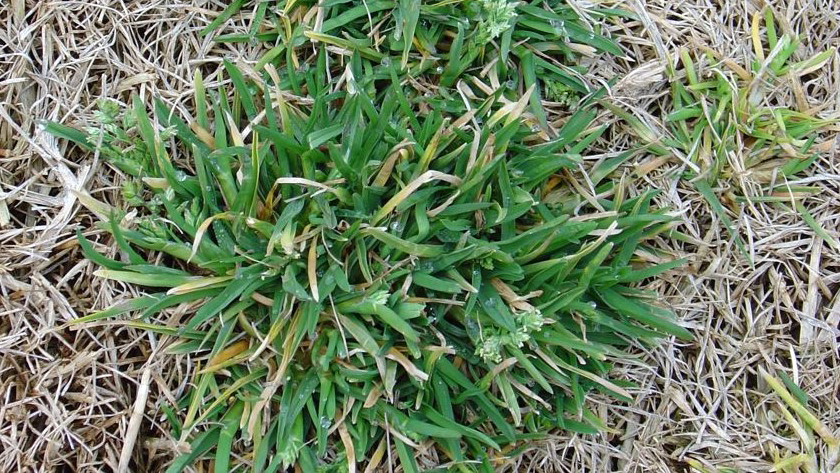
A team of university scientists from across the U.S. is waging a nationwide offensive against a dastardly weed that the turfgrass industry in Alabama and beyond deems Enemy No. 1.
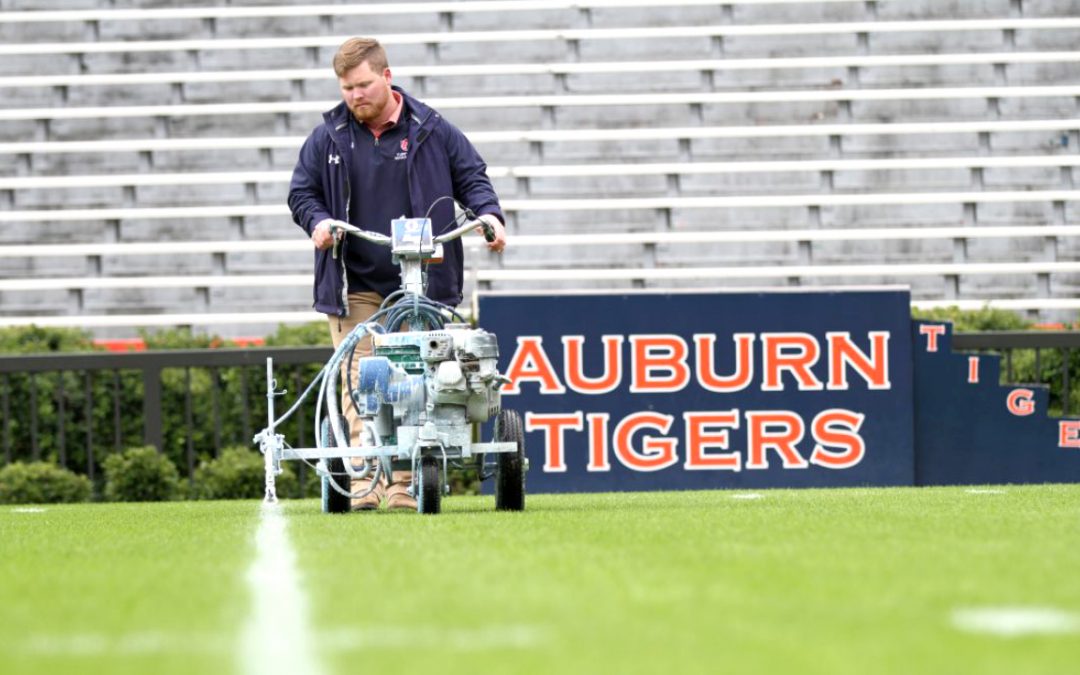
2019 already is shaping up to be a super year for Wilson Morgan — a super year that starts with a trip to the Super Bowl.
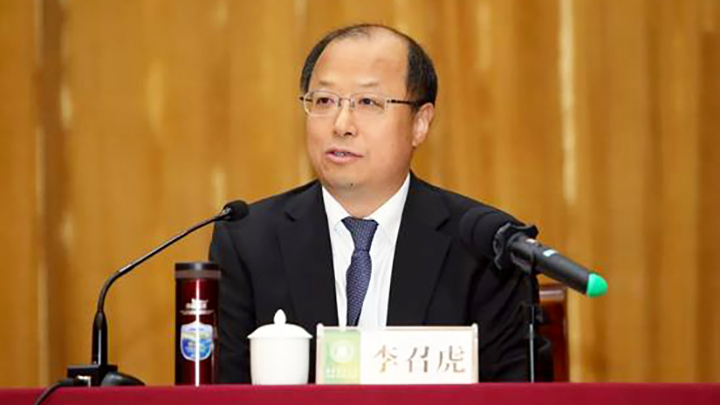
Zhaohu Li, an Auburn University College of Agriculture alumnus, has been named president of Huazhong Agricultural University, one of the top agricultural universities in China. The institution is located in Wuhan, the capital of Hubei province.
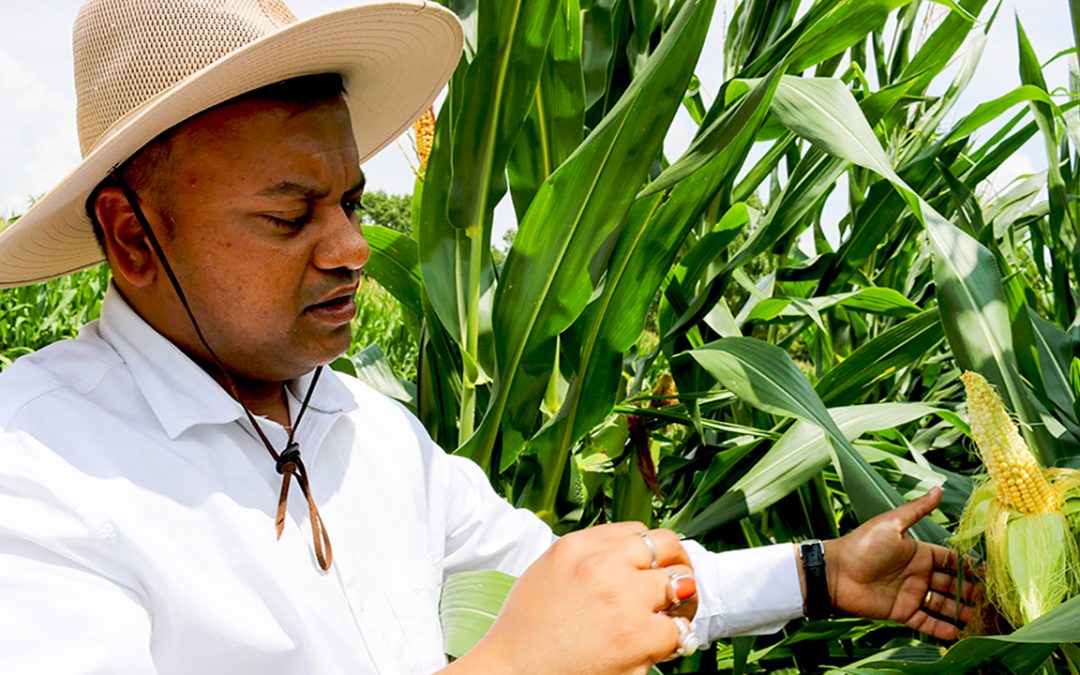
Farmers will need to change their management strategies over the next few decades to adapt to impending climate extremes, according to a study recently published by researchers at Auburn University and Pennsylvania State University.

If you’re going to keep up with Kenzley Defler, you’d better put on your running shoes. Not just because she’s an avid long-distance runner and Auburn track and field team member, but because she’s always in motion—working here, researching there and serving everywhere.

Auburn University President Steven Leath has tapped Beth Guertal, professor in the Department of Crop, Soils and Environmental Sciences, to lead a strategic planning process that will bring 500 new tenure-track faculty in the next five years.
Only 16 of Auburn University’s 1,330 faculty members currently hold the prestigious title of Alumni Professor, and six of those 16 are in the College of Agriculture. As is often the case, the college boasts more Alumni Professors than any other college or school on...
The Auburn College of Agriculture’s distance education program, Auburn Ag Online, has been ranked the second best online agriculture degree program in the nation by guidetoonlineschools.com.
By Eddie McGriff McMichen Farm has become the first farm in Alabama to make and break the 100-bushel soybean barrier with just more than 102 bushels per acre. The Cherokee County farm—located near Centre in northeast Alabama—has been in the McMichen family since 1842....
By Paul Hollis The latest numbers tell the irrigation story: In Alabama, only 15 percent of the land currently available for farming is irrigated, a far cry from Mississippi’s 61 percent of cropland and Georgia’s 40 percent. Over time, that lack of irrigation...
Auburn agronomist Trey Cutts, Department of Crop, Soil and Environmental Sciences assistant professor and extension cotton specialist, is one of seven University of Georgia College of Agricultural and Environmental Sciences graduates that the college’s alumni...
An innovative contract between the College of Agriculture at Auburn University and the International Fertilizer Development Center, or IFDC, Auburn University College of Agriculture Dean Paul Patterson and J. Scott Angle, president and CEO of the International...
By Paul Hollis From a new, high-yielding peanut variety to advanced weapons against a menacing weed species, Auburn University researchers showcased a broad range of their work during Alabama 2nd District Congresswoman Martha Roby’s recent tour of the Wiregrass...
By Paul Hollis Long-term research is vital to the future of U.S. production agriculture, but farmers can’t always afford to wait for solutions to their most pressing problems. That’s why a new Auburn University funding program is providing shorter-term grants that...
By Paul Hollis The Central Alabama Crops Tour has been an annual happening on the region’s farm scene for just shy of 40 years now, with Auburn University researchers and extension specialists and county and regional agents updating producers on the latest in...
By Jamie Creamer The College of Agriculture has launched a project to establish a highly productive, on-campus teaching garden that will give greater visibility to active agricultural fieldwork at Auburn and enhance the legacy of the historic Old Rotation. Faculty...
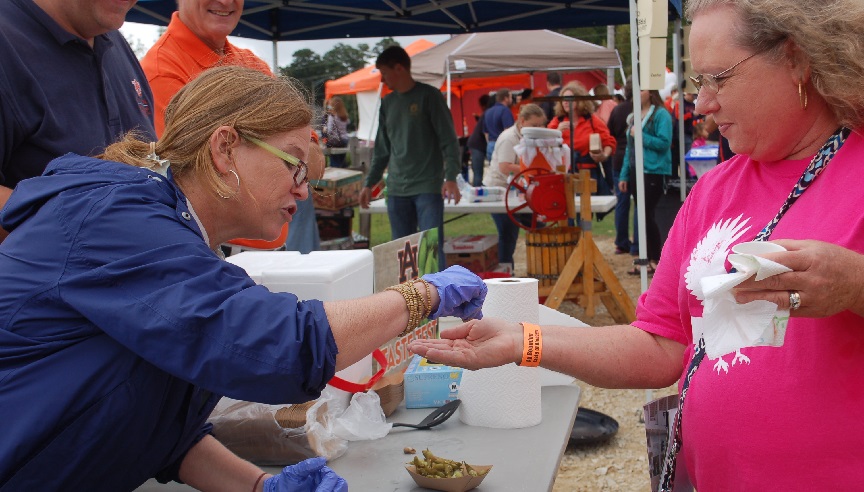
Beth Guertal, professor of turfgrass and nutrient management, has been named the Auburn University College of Agriculture’s first Rowe Endowed Professor. The endowed professorship was established by 1978 Auburn alumni Mike and Leann Rowe to support tenured faculty who have demonstrated strong commitment to students, teaching, research and service.
By Paul Hollis A research team led by Auburn University is working to help peanut farmers maintain and improve their production in a changing environment that’s certain to include increasingly limited water resources. “Adequate water availability for all crops is an...
By Paul Hollis By most any standard, a $1.85 return on an initial investment of $1 is a good deal. According to a recent study, that’s what federal investments into agricultural research pay back through additional investments from state, local and private-sector...

A six-member team of Auburn agriculture majors won first place in the university’s inaugural Global Health Case Competition in January and advanced to the 2019 statewide contest in March at the University of Alabama Birmingham.
Nineteen Auburn College of Agriculture and Alabama Agricultural Experiment Station faculty who collectively secured more than $11.8 million in research funding in the past fiscal year were among the 32 honorees in the college’s 2018 faculty and staff awards program in...

A team of university scientists from across the U.S. is waging a nationwide offensive against a dastardly weed that the turfgrass industry in Alabama and beyond deems Enemy No. 1.

2019 already is shaping up to be a super year for Wilson Morgan — a super year that starts with a trip to the Super Bowl.

Zhaohu Li, an Auburn University College of Agriculture alumnus, has been named president of Huazhong Agricultural University, one of the top agricultural universities in China. The institution is located in Wuhan, the capital of Hubei province.

Farmers will need to change their management strategies over the next few decades to adapt to impending climate extremes, according to a study recently published by researchers at Auburn University and Pennsylvania State University.

If you’re going to keep up with Kenzley Defler, you’d better put on your running shoes. Not just because she’s an avid long-distance runner and Auburn track and field team member, but because she’s always in motion—working here, researching there and serving everywhere.

Auburn University President Steven Leath has tapped Beth Guertal, professor in the Department of Crop, Soils and Environmental Sciences, to lead a strategic planning process that will bring 500 new tenure-track faculty in the next five years.
Only 16 of Auburn University’s 1,330 faculty members currently hold the prestigious title of Alumni Professor, and six of those 16 are in the College of Agriculture. As is often the case, the college boasts more Alumni Professors than any other college or school on...
The Auburn College of Agriculture’s distance education program, Auburn Ag Online, has been ranked the second best online agriculture degree program in the nation by guidetoonlineschools.com.
By Eddie McGriff McMichen Farm has become the first farm in Alabama to make and break the 100-bushel soybean barrier with just more than 102 bushels per acre. The Cherokee County farm—located near Centre in northeast Alabama—has been in the McMichen family since 1842....
By Paul Hollis The latest numbers tell the irrigation story: In Alabama, only 15 percent of the land currently available for farming is irrigated, a far cry from Mississippi’s 61 percent of cropland and Georgia’s 40 percent. Over time, that lack of irrigation...
Auburn agronomist Trey Cutts, Department of Crop, Soil and Environmental Sciences assistant professor and extension cotton specialist, is one of seven University of Georgia College of Agricultural and Environmental Sciences graduates that the college’s alumni...
An innovative contract between the College of Agriculture at Auburn University and the International Fertilizer Development Center, or IFDC, Auburn University College of Agriculture Dean Paul Patterson and J. Scott Angle, president and CEO of the International...
By Paul Hollis From a new, high-yielding peanut variety to advanced weapons against a menacing weed species, Auburn University researchers showcased a broad range of their work during Alabama 2nd District Congresswoman Martha Roby’s recent tour of the Wiregrass...
By Paul Hollis Long-term research is vital to the future of U.S. production agriculture, but farmers can’t always afford to wait for solutions to their most pressing problems. That’s why a new Auburn University funding program is providing shorter-term grants that...
By Paul Hollis The Central Alabama Crops Tour has been an annual happening on the region’s farm scene for just shy of 40 years now, with Auburn University researchers and extension specialists and county and regional agents updating producers on the latest in...
By Jamie Creamer The College of Agriculture has launched a project to establish a highly productive, on-campus teaching garden that will give greater visibility to active agricultural fieldwork at Auburn and enhance the legacy of the historic Old Rotation. Faculty...

Beth Guertal, professor of turfgrass and nutrient management, has been named the Auburn University College of Agriculture’s first Rowe Endowed Professor. The endowed professorship was established by 1978 Auburn alumni Mike and Leann Rowe to support tenured faculty who have demonstrated strong commitment to students, teaching, research and service.
By Paul Hollis A research team led by Auburn University is working to help peanut farmers maintain and improve their production in a changing environment that’s certain to include increasingly limited water resources. “Adequate water availability for all crops is an...
By Paul Hollis By most any standard, a $1.85 return on an initial investment of $1 is a good deal. According to a recent study, that’s what federal investments into agricultural research pay back through additional investments from state, local and private-sector...